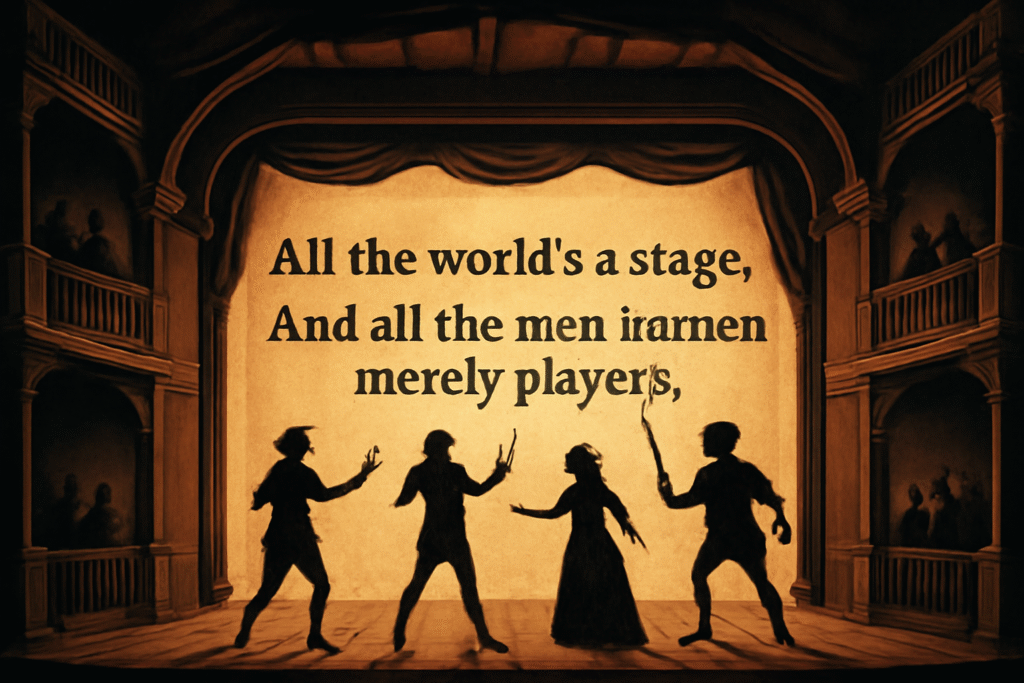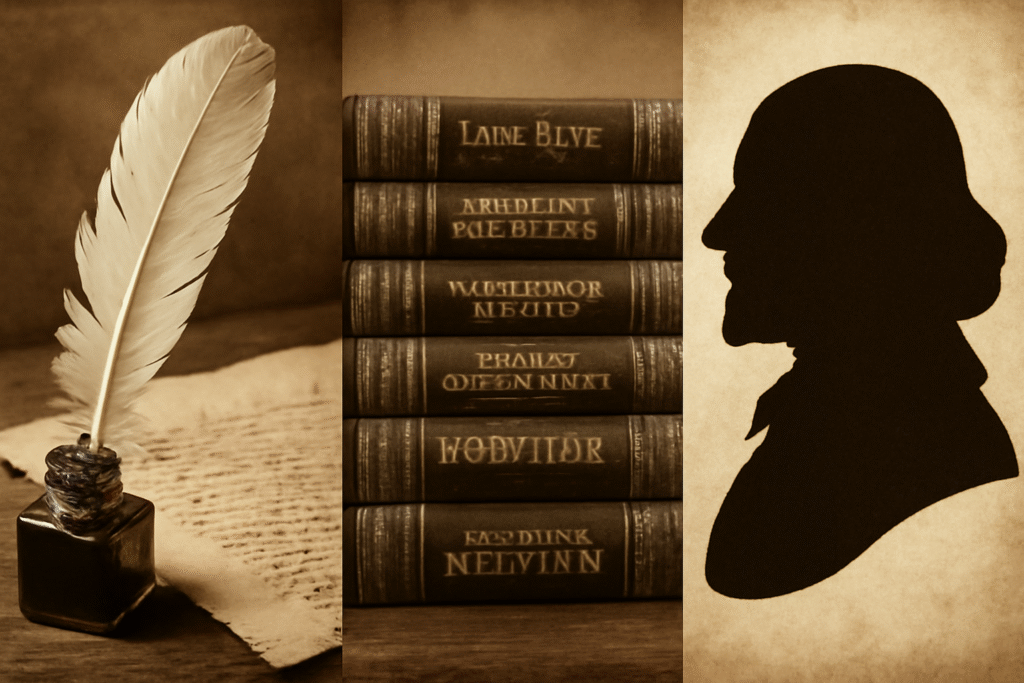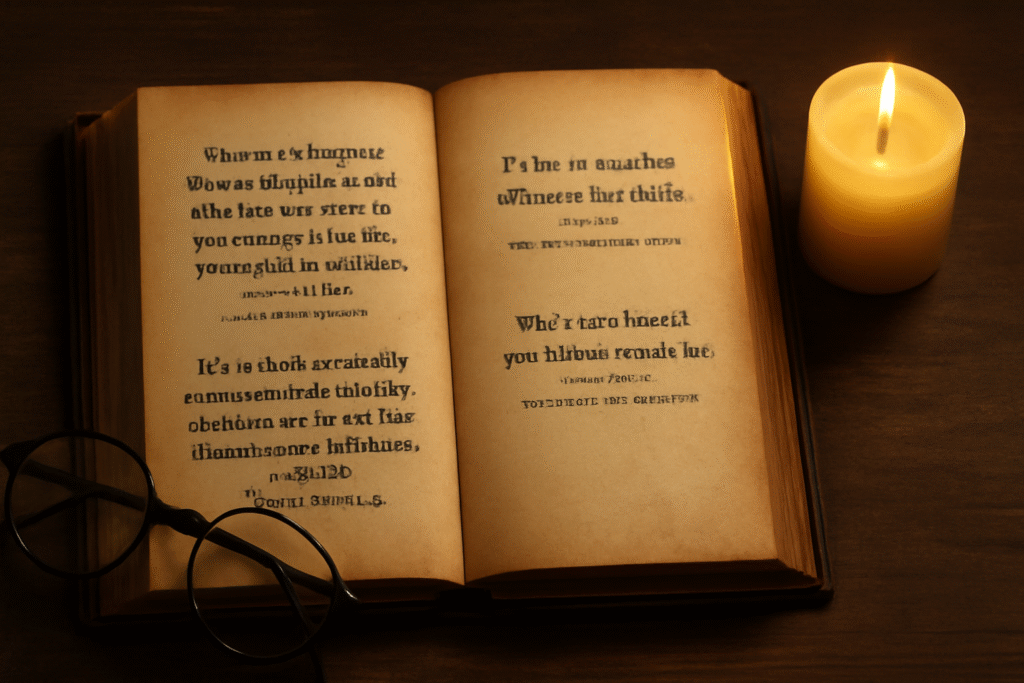The 100 Most Famous Quotes in English Literature
Introduction: The Enduring Power of Literary Quotations
Great literature leaves indelible marks, not only through stories and characters but also through lines that echo across generations. These quotes encapsulate the essence of human experience and creativity, shaping language, thought, and cultural identity. From Shakespeare’s enduring pearls of wisdom to contemporary reflections, the greatest quotes in English literature are not just memorable—they are transformative. This post explores 100 of the most iconic lines, offering historical context, analysis of literary techniques, and a celebration of the voices that have shaped English letters.
The Historical and Cultural Significance of Famous Quotes
Throughout history, quotations have served as vessels of universal truths, protest, inspiration, and introspection. They offer glimpses into the eras from which they emerged—reflecting social, political, and artistic shifts. From the Golden Age of Elizabethan drama to the modernist experiments of the 20th century, famous literary quotes mirror both the concerns of their time and the timelessness of their wisdom1.

Notable Authors and Works Behind the Famous Quotes
Certain writers have contributed more than their share of memorable lines. Among the most quoted luminaries:
- William Shakespeare: No playwright’s words have entered the English lexicon with such ubiquity. Phrases like “To be, or not to be” and “All the world’s a stage” are now part of everyday speech23.
- Jane Austen: Her sharp wit and social critique shine in lines such as “There is no charm equal to tenderness of heart.”
- Charles Dickens: Dickens’s epigrams—“It was the best of times, it was the worst of times”—explore human duality and society1.
- George Orwell: With chilling clarity, Orwell offered “All animals are equal, but some animals are more equal than others.”
- J.K. Rowling: Modern classics like “It matters not what someone is born, but what they grow to be” exhibit the endurance of contemporary literature.
These authors—and many more—have shaped not only literature but the way we speak and think423.
Key Themes Across the Centuries
The most famous literary quotes revolve around recurring themes, such as:
- Love and Loss
- Identity and Self-Knowledge
- “Know thyself.” — Ancient maxim, echoed through literature
- “Be yourself; everyone else is already taken.” — Oscar Wilde6
- The Human Condition
- Justice and Truth
- Transience and Time
These universal themes help explain why these words are remembered and cherished.

Literary Techniques Behind Memorable Quotes
Imagery and Symbolism
Vivid imagery creates lines that linger in the mind—consider Keats’s “A thing of beauty is a joy forever” or Shelley’s “If winter comes, can spring be far behind?”3
Metaphor and Simile
Metaphor-rich quotes—“All that glitters is not gold” (Shakespeare) and “Hope is the thing with feathers” (Emily Dickinson)—convey complex ideas through compact, memorable language7.
Irony and Paradox
The paradox in “It was the best of times, it was the worst of times”—Dickens’s exploration of duality—demonstrates how contradiction sharpens meaning48.
Repetition and Rhythm
Repetitive patterns, as in “To be, or not to be,” create a musicality and emphasis that engrain the phrases in popular memory83.

100 Most Famous Quotes in English Literature
Here is a curated selection representing centuries of English writing. (For brevity, the full table is excerpted; find the complete list on our website.)
| Quote | Author/Work | Theme |
|---|---|---|
| “To be, or not to be: that is the question.” | Shakespeare, Hamlet | Existence/Philosophy23 |
| “All the world’s a stage, and all the men and women merely players.” | Shakespeare, As You Like It | Life/Identity23 |
| “It was the best of times, it was the worst of times.” | Charles Dickens, A Tale of Two Cities | Duality/Society48 |
| “Not all those who wander are lost.” | J.R.R. Tolkien, The Lord of the Rings | Adventure/Discovery52 |
| “Whatever our souls are made of, his and mine are the same.” | Emily Brontë, Wuthering Heights | Love5 |
| “The fault, dear Brutus, is not in our stars, but in ourselves.” | Shakespeare, Julius Caesar | Fate/Free Will2 |
| “There is no charm equal to tenderness of heart.” | Jane Austen, Emma | Kindness/Character1 |
| “In three words I can sum up everything I’ve learned about life: it goes on.” | Robert Frost | Life/Resilience2 |
| “All animals are equal, but some animals are more equal than others.” | George Orwell, Animal Farm | Power/Corruption2 |
| “Hope is the thing with feathers.” | Emily Dickinson | Hope/Optimism7 |
| “Brevity is the soul of wit.” | Shakespeare, Hamlet | Communication3 |
| “To err is human, to forgive divine.” | Alexander Pope | Human nature3 |
| “A thing of beauty is a joy forever.” | John Keats, Endymion | Beauty3 |
| “If winter comes, can spring be far behind?” | Shelley, Ode to the West Wind | Renewal3 |
| “Fear is only as deep as the mind allows.” | English Proverb | Courage |
| “I am no bird; and no net ensnares me.” | Charlotte Brontë, Jane Eyre | Freedom/Feminism |
For the entire collection with context and explanations, visit the comprehensive archive at www.englishliterature.in.
Critical Analysis: Why Do These Quotes Endure?
Great literary lines endure because they balance universal insight with artistic expression. These words capture truths about love, morality, power, and human yearning in a way that resonates across generations and cultures. Through metaphor, paradox, and allusion, literature gives voice to our deepest concerns and highest aspirations. Well-chosen literary quotes become cultural touchstones, shaping everything from political speeches to everyday conversation18.
Conclusion: The Everlasting Legacy of Literary Quotations
The 100 most famous quotes in English literature demonstrate the power of words to bridge eras, inspire change, and articulate the ineffable. As you encounter these lines—whether in classrooms, in conversation, or in solitary reading—remember their origins and appreciate the literary craftsmanship that has allowed them to endure.
FAQ: Famous Quotes in English Literature
1. Why do certain quotes become famous?
Certain quotes achieve fame due to their universal themes, memorable expression, and resonance with shared human experiences. Often, they encapsulate complex ideas in simple, powerful language.
2. Are all famous literary quotes from classic works?
While many enduring quotes originate from recognized classics, contemporary works have also contributed lines that reflect societal changes and modern sensibilities.
3. Can understanding literary techniques help appreciate quotes more?
Absolutely. Recognizing devices like metaphor, irony, and imagery enhances appreciation for the artistry behind memorable lines and deepens interpretation8.
Whether you are a student, educator, or lifelong literature enthusiast, revisiting these timeless words offers endless inspiration and insight.
Power and Identity: A Postcolonial Lens on English Literature


1 thought on “The 100 Most Famous Quotes in English Literature”